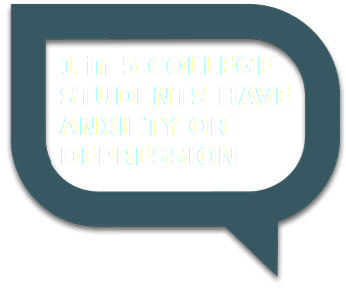ATTENTION DEFICIT/HYPERACTIVITY DISORDER (ADHD) TESTING FOR ADULTS
WHAT IS ADULT ADHD TESTING?
Bryce Gibbs PhD & Associates offers quick, fully remote, neurocognitive ADHD evaluations. These assessments are not simply “interviews” followed by a quick survey but involve neuropsychological tests that can confirm or disconfirm the presence of inattention, distractibility, processing speed deficits, and impulsive/hyperactive tendencies. Further, these batteries will determine if other factors, such as anxiety or depression, are present as well. Typically, these evaluations will yield a report within 48 hours. This diagnostic report can then be taken to your general practice physician to validate your ADHD diagnosis and guide their prescriptive decisions.
WHAT IS ADHD?
As stated in the Diagnostic and Statistical Manual of Mental Disorders, 5th Edition – Text Revision (DSM-V-TR), population surveys suggest that ADHD occurs in about 5% of children and 2.5% of adults in the general population. ADHD is defined as a persistent pattern of inattention and/or hyperactivity-impulsivity that interferes with functioning or development.
ADHD is indicated, in adults, if 5 or more of the following symptoms (in one or both of the two categories below) have persisted for at least 6 months and these symptoms interfere with life functioning:
ADHD
INATTENTION:
- Failure to give close attention to details and is prone to careless mistakes.
- Difficulty sustaining attention
- Not appearing to listen when spoken to
- Does not follow through on instructions and fails to finish tasks
- Difficulty with organizing tasks or activities
- Avoids and dislikes tasks that require sustained mental effort
- Frequently loses things necessary for tasks and activities
- Is often distracted
- Is often forgetful
HYPERACTIVITY AND IMPULSIVITY:
- Often fidgets with hands or squirms in seat
- Often leaves seat and cannot remain seated
- Often feels restless
- Is unable to engage in leisure activities quietly
- Is often “on the go” and appears as though “driven by a motor”
- Talks excessively
- Blurts out answers in conversations or meetings
- Has difficulty waiting his or her turn
- Often interrupts or intrudes on others
Adult ADHD is ADHD that has been identified in adulthood versus childhood. Most often, ADHD symptoms manifest in early childhood, and become apparent to parents, teachers, or pediatricians during routine check-ups. Sometimes, ADHD symptoms will not be identified even if they are present. This occurs for a variety of reasons. At times, there are stressors within the family system or mood symptoms present (e.g., depression) that can “mask” the presence of ADHD symptoms. At other times, very intelligent children who are hardworking can “push through” their inattention and do well in school, even though they may have ADHD symptoms that cause them to work harder than other kids without the diagnosis. Also, when children have a primary inattentive type of ADHD with no hyperactive-impulsive symptoms, inattention may not be noticed as readily because overt disruptive behaviors are not present. Whatever the case may be, these “missed” childhood cases can become problematic in adulthood because an individual is struggling to focus within the workplace, or perhaps is struggling within the home environment because of poor organization and planning. When these adult cases are identified in adulthood, they are called “adult ADHD.” Finally, in rare cases and for unknown reasons, symptoms of ADHD may begin to manifest in adulthood when they were not present in the person’s childhood. These cases may result from head trauma, medical conditions, environmental toxin exposure, or age-related cognitive decline. Regardless of the origin, these manifestations of ADHD are referred to as “Adult-onset ADHD.”
WHAT IS ADULT ADHD?
WHY SHOULD I BE TESTED?
If ADHD symptoms are negatively affecting your work and/or homelife, you should attain one of our brief neuropsychological test batteries. The reason is that simply visiting a psychiatrist or general practice physician may yield a diagnostic guesstimate that a patient has ADHD, but no cognitive data will be gathered to validate the presence of ADHD. Further, these clinicians will not conduct a detailed emotional assessment to rule out the presence of other conditions like depression and anxiety that could be impairing cognitive functions. Finally, if you attempt to get ADHD medication from a primary care doctor, they will often require ADHD testing to confirm the presence of the disorder. If you or a loved one believe you are suffering from ADHD and have never been assessed, then please contact Bryce Gibbs PhD & Associates to schedule a clinical interview with one of our providers.
EVERY SERVICE WE PROVIDE STARTS WITH A PSYCHOEDUCATIONAL ASSESSMENT BATTERY
Your testing process will be supervised by a psychologist and the assessment will begin with a clinical interview to get necessary background info. After, you will be tested by a psychometrician who will administer intellectual, academic, attention, emotion, and personality measures.
WE CAN HELP

ADHD IN COLLEGE STUDENTS
IS OFTEN OVERLOOKED
Though ADHD symptoms are easily recognizable in many people, they are not as apparent in high achieving college students who put in grueling hours to achieve their grades, leaving them beleaguered and taxed. These students often lack sleep and are very susceptible to developing anxiety and depressive disorders that compound their ADHD symptoms. For these students, academic accommodations are essential.
